Whether used for business or pleasure, hotels have become an integral hub for today’s traveler. They’re inexpensive, convenient, and generally accepted as a safe, comfortable alternative to sleeping in a car or under a bridge. But hotels come with their own laundry list of pitfalls and potential travel security threats. By the time you see this, it’ll be the height of the American holiday travel season. So we felt like this was the perfect time to dive deep into some best practices for keeping your safety, security, and privacy fully intact during your current and future travels.
For a broader perspective, we talked to two people well-versed in domestic and international travel security. William Echo (a pseudonym necessary for his current career) is a corporate security professional and former law enforcement officer with more than a decade of experience in developing, implementing, and testing protective security protocols. Opposite him is Micah Dalton, a true modern-day nomad who has spent the better part of the last decade roaming the planet in search of good whiskey and great adventure. Along the way, he has made himself a perpetual student of street lessons and trained with some very specialized experts, including OFFGRID contributor Ed Calderon. The sheer volume of his practical street wisdom is nearly unmatched, even among our own cadre. Hopefully, these gentlemen and their varied experiences will help you develop a keen eye to keep yourself safe, regardless of where your travels take you.
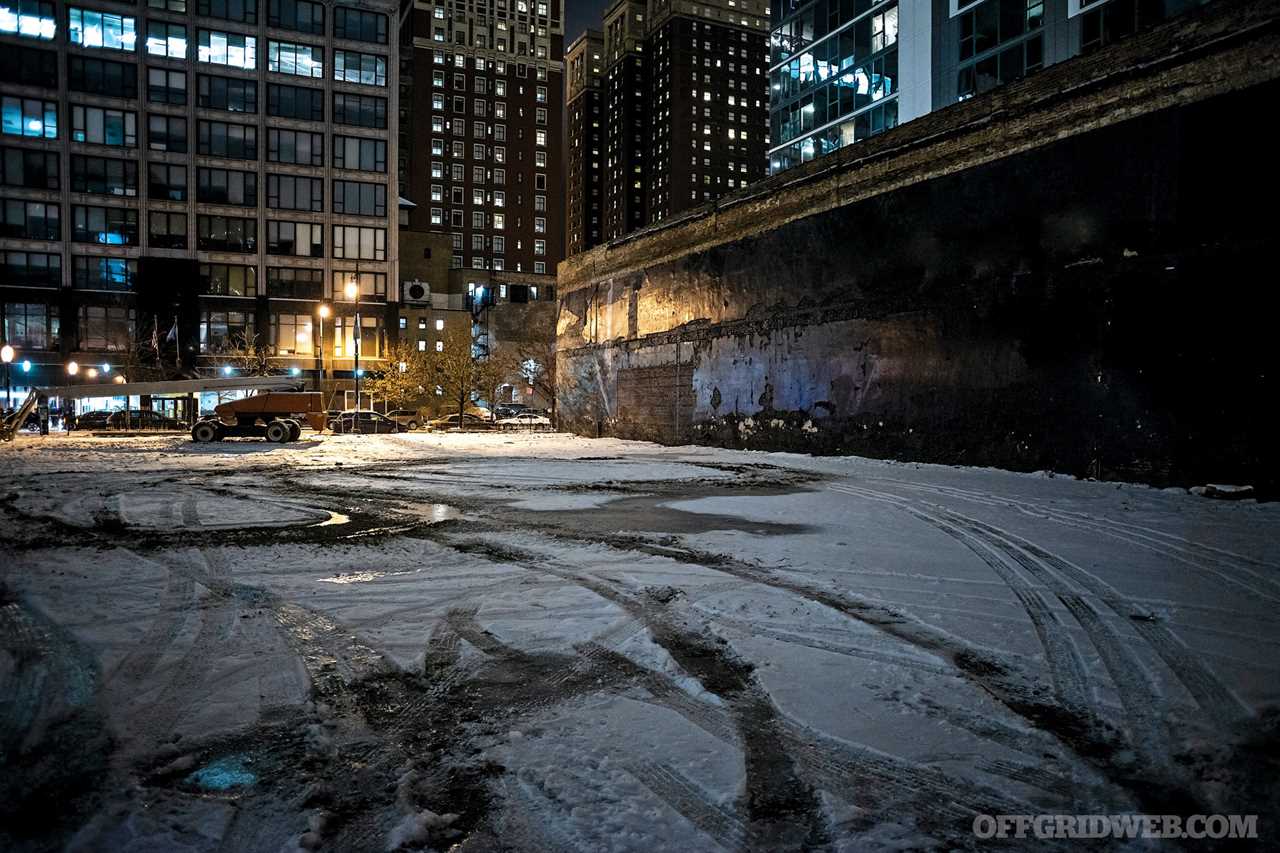
Travel Security Preparations
RECOIL OFFGRID: How would you go about finding a safe part of town in an unfamiliar city?
William Echo: www.crimereports.com and www.crimemapping.com are great resources. However, there are times where information for that specific area isn’t available (because LE agencies aren’t feeding them). I’d do a Google search for that specific area with the words “local news.” Often the news media have crime-mapping capabilities on their websites. If not, just use the search function on the local media’s website for the word “shooting” and sort the results by date and look for patterns.
Micah Dalton: I have a travel notebook. This is one of the most important steps you can take to ensure safe and successful trips. If I had to attribute my success to one “secret tip” it would be this. I don’t see a lot of people doing it, but they really should. I know at first the thought of a “travel notebook” conjures the image of a weathered, leather-bound book where poetry litters the pages. However, the travel notebook I’m speaking of is a bit more practical and utilitarian. It’s a learning tool, which will allow you to catalog and research the city that you want to visit.
When researching the safety of a potential destination, I use a funnel system, starting big and going small. On a large scale, the U.S. Department of State website (travel.state.gov) is an optimal starting point. It provides a foundation of general travel safety information as well as travel advisories you may not have been aware of. Check out a couple alternative news sources from other countries to build a solid framework. From there, the internet is a wealth of knowledge at your fingertips.
My top two searches for any new destination are always “the most dangerous area in …” and “the best neighborhood to visit in …” This will quickly provide you with an area you should definitely avoid as well as an area that's likely safe for the average traveler. Expand on this information by checking local lifestyle publications — every city has one; you just have to look. Police bulletins, activity, and arrests are all public domain. This should give you a functioning understanding of the different neighborhoods of the city. Google Street View is also great for reviewing an area that you're considering.
Record all this in your journal, leaving space for discoveries, corrections, and enlightenments. With each city, you'll refine your technique and soon see what information proves most useful for your specific type of travel. This one simple practice will aid you in cultivating an essential skill for being a better and safer traveler — not to mention provide a safe place if you feel inspired to write a little poetry.
Are more expensive or upscale hotels necessarily safer? Why?
WE: Absolutely not. You can find a five-star hotel anywhere, including in “Chiraq.” There are plenty of metro areas around the country that have lavish hotels that would recommend not walking around the hotel after dark. Furthermore, lavish hotels spend more money on the aesthetics and amenities than they do on security. If you don’t believe me, look at the lobby of a five-star hotel and see if you can locate the security devices (if any). Now go to a motel outside the projects — I bet they’ll have at least CCTV, and in some cases, doors with electronic locks where you have to get “buzzed” in to the lobby by someone with a .38 behind the counter. The floors may not be made of marble, but they at least have some proactive measures.
MD: In my experience, high-end hotels are generally safer for the average traveler for a couple of reasons. Expensive hotels have a tendency to be in nicer areas and have better on-premises security. That being said, you should still be on alert in your transitional zones — on the way there, checking in, leaving the hotel, and most importantly, entering your room. Luxury hotel security though, like all casual security, isn’t so much about making your stuff objectively secure as it is making it relatively secure. A small-time thief is less likely to follow you or try to break into the room of a hotel with 24-hour security and reception, and keycard-operated elevators. Someone who doesn’t belong will also be more easily spotted in this type of establishment versus a seedy place where everyone avoids eye contact. However, it’s still very possible and not terribly difficult to do if that's your goal. The only thing that can really keep you safe is you.
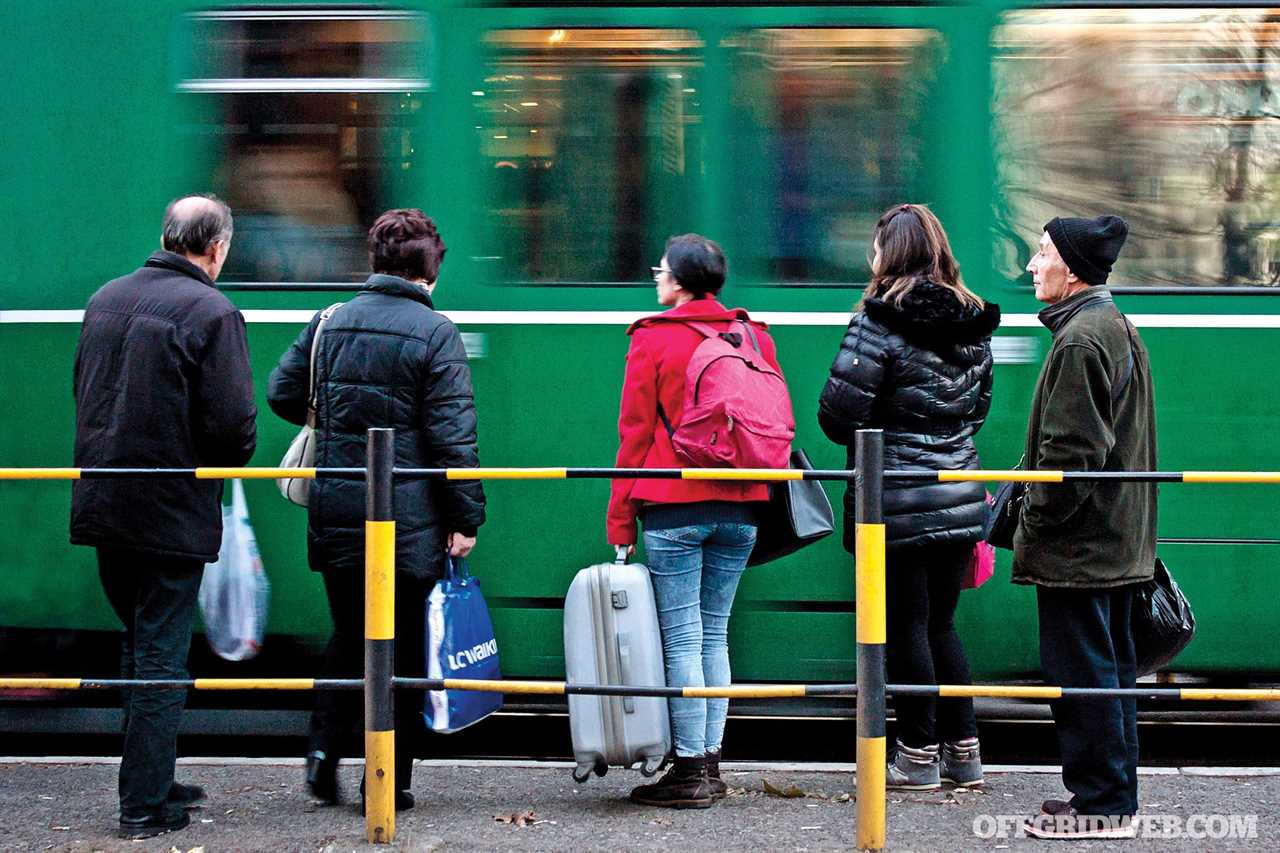
You should know the local method of transportation, how to navigate it, and if your lodging is close to a main hub.
What are some additional lodging considerations for international travel?
WE: I approach domestic and international lodging the same way. However, I will say that if it’s in an area that's frequented by American tourists, don’t believe the online reviews. Do a lot of research and see if you can find someone — even a friend of a friend — who has visited that area before to gather some trusted information. I’m sure if Ted Bundy had a hotel nowadays, it would have five stars on Yelp. Again, I do this for domestic travel as well, but it’s overlooked in both avenues: law enforcement and (more likely) EMS/hospital capabilities. You don’t want to pass out from food poisoning and wake up with a witch doctor standing over you … unless you’re into that kind of thing.
MD: One of the biggest considerations that I’m surprised some people don’t look into is proximity. If you're visiting a new city, you usually have a general idea of what you'll be doing there. So, get on Google Maps and take a look at the city to see where those things are. Your hotel should be in that area or at least nearby. This will not only save you money on transportation, but also save time getting from one place to another. I also like to make note of where certain things are in relation to my hotel — hospital, police station, nearest bar, public transportation. You should know the local method of transportation, how to navigate it, and if your lodging is close to a main hub. If you're prepared ahead of time, you can avoid the telltale tourist look of checking a map for directions, or not knowing which bus to get on.
A big plus when you’re choosing a hotel is if they have a 24-hour reception desk. This not only acts as a line of defense against anyone getting into the hotel that shouldn’t be there, but is also one of your greatest resources in an unfamiliar city. The receptionist most likely speaks decent English and can give you local recommendations. If an emergency were to come up, you can use the receptionist as a point of contact. They know you because you're staying at their hotel and are usually willing to help you communicate with local authorities if necessary.
When researching lodging online, what are some dead giveaways for establishments that may be unsafe to stay in?
WE: All five-star reviews — everybody bitches about stuff online, so if it’s all five stars, the reviews are fake. Even the Biltmore has bad reviews from rich folks whose bidet didn’t work properly. So tread lightly. The other extreme — all bad reviews — definitely believe that because (once again) everybody bitches about stuff online. Make sure you check the Crime Reports and Crime Mapping websites for info. And last but not least, do a Google-street-view drive-by of the area. If the environment looks sketchy during the day when the Google car drove by, it won't turn into Shangri-La once the sun sets.
MD: You see a great deal on a nice-looking hotel, but it only has five reviews. This is a huge red flag! While it doesn’t always mean something is wrong, there are plenty of options out there, so why risk it? Read the reviews, and not just the rating or number of stars, but actually go through and read a bunch of reviews. When I’m picking my next hotel, I'll read down a good 15 to 20 reviews. The ones at the top are typically good, but once you scroll down a bit, you’ll start to see the negative reviews, and these are the most important ones. Pay attention to a problem that multiple people mention— this likely means it’s not just a one-off issue that occurred. Another good practice is to read reviews on multiple sources. Check out Agoda, Expedia, the hotel’s website, etc. Pick at least two different sources to really get a good picture of the place. Chances are, if there are very few reviews, or the reviews are overwhelmingly negative, you should pick a different place to stay.
Don’t forget, if it looks too good to be true, it probably is. A really great-looking hotel that’s suspiciously cheap? There’s probably reasons for that. Don’t be fooled by the pictures either. Traveling through Asia, I can tell you from experience that lower-end hotels can and will use straight-up fake pictures on their websites. And if they’re willing to do that, chances are you'll run into all kinds of problems there.
Hotel Travel Security Procedures
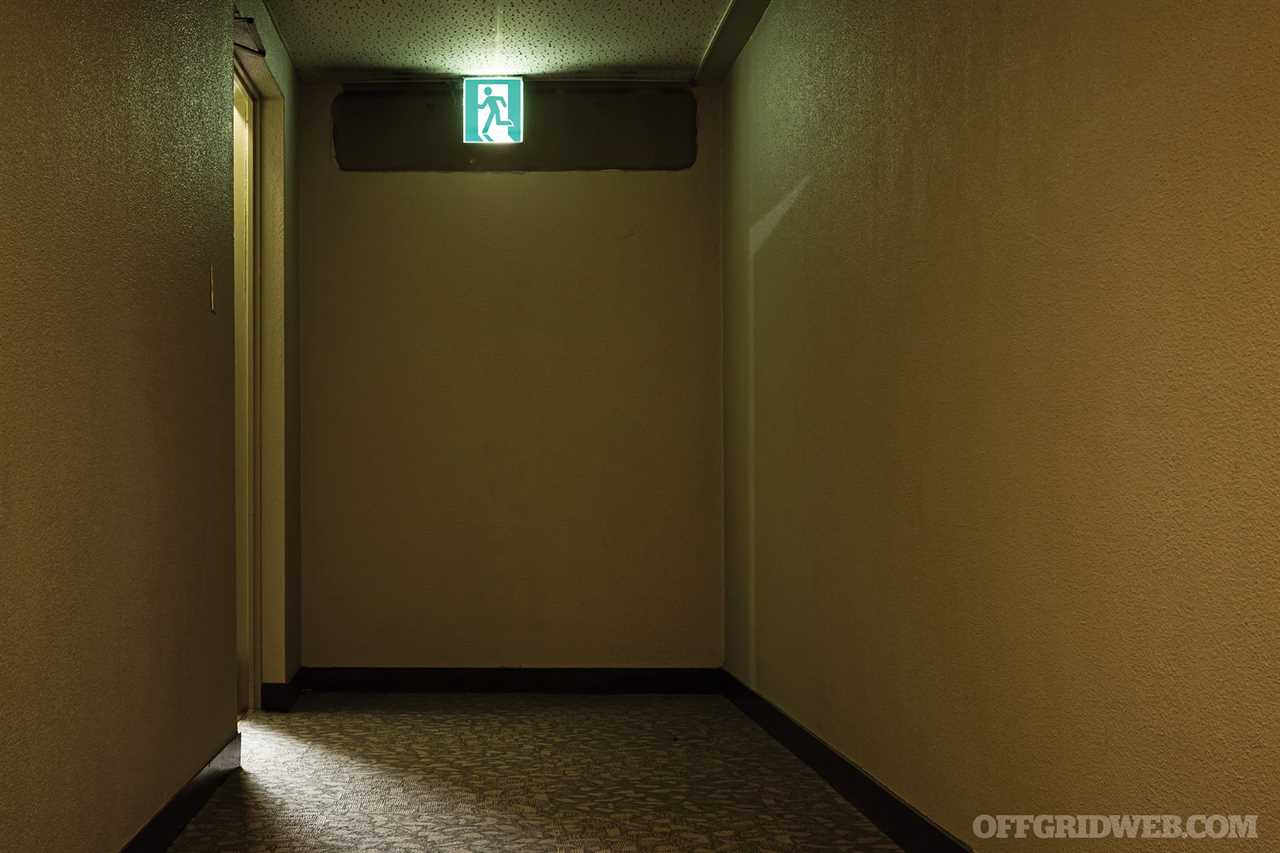
Are there any general safety procedures you follow when staying in a hotel, such as what floor you stay on, having your room in proximity to stairwells/elevators, devices you use to bolster your room's security from intruders, etc.?
WE: I always ask for a room next to the stairwell, or as close as I can get. If it’s not right next to the stairwell, make sure to find the closest emergency stairwell and count how many doorframes are between you and the exit. This way, in the event that the hallway is full of smoke or in complete darkness, you know how many doorframes to count when making your way to the exit. Another advantage to this is that most hotels allow for ingress and egress with the use of a proximity card (or some other form of key access control) on doors that are connected to the emergency stairwell, or just outside of it. Once you park your car (backed in) to a parking space outside the emergency exit door (at the bottom of the stairwell closest to your room) you now have a way of coming and going without being observed by the hotel staff and any other “guests” that may frequently hang out in the lobby. This way, it becomes more difficult for these strangers to track your daily routine.
As far as what floor, always consider your (and your loved ones’) physical capabilities. If you have to take the stairs in an emergency, you can make it down, but can grandma? Your pregnant wife? How far can you carry your children down a hot stairwell crammed with panicking people? In the event that your chosen hotel is a high-rise, make sure to factor all these in. But also remember that even the biggest ladder trucks can only reach about eight stories up — and that’s only relevant if you haven't succumbed to smoke inhalation by the time they arrive. So as a worst-case scenario, don’t go for a room above that point.
To increase your security while in a hotel, one of the first things to consider is your mouth. Be careful what you tell people — where you work, where you live, if you’re staying at the hotel because you’re working on a crew doing a refresh of a local Walmart or installing expensive (and sensitive) equipment for a client. Remember, only fully fabricate your story unless you’re able to support it. Using generalities or omitting specific items that would make you a target is perfectly acceptable.
Beyond utilizing the “loose lips sink ships” mantra, there are a few other practices that can help increase your security posture while travelling. First, the do-not-disturb sign. Use it when you have equipment or specialty items you wish to keep from prying eyes. If it comes off when you open the door because it’s 160-percent recycled paper and weighs nothing, add a little tape. You can use the same towels a couple days in a row. You’re a grown-ass man or woman — you can make your own bed.
For an entry alarm, the good ol’ empty beer bottle on the handle trick still works great. Even if the interior handle of the door handle doesn’t move when the outside is turned, the forward inertia of the door (and sudden stop) will send the bottle airborne and onto the ground, alerting you of entry. You can also purchase doorstop alarms from Amazon. You place the edge of the device under the door and any movement will cause the alarm to sound. It'll definitely wake you up.
If there’s a privacy bar/arm (instead of a chain) installed on the inside of the door frame, don’t trust it — it’s almost completely useless. Extend it so it’s pointing directly at you, then locate the ice bucket in the room and hang it on the extended bar/arm. If someone opens the door while you’re sleeping, the sound of the empty bucket hitting the floor will wake you up. Toss in a few bottle caps or the caps off the complimentary shampoo and conditioner bottles in there to add even more noise. Every little bit helps. There are a plethora of door alarms on the market; take your pick. Everything from tripwire alarms to lasers and infrared beams. Just be careful with the lasers and the IR beams; they’re usually pretty cheap and some lighting can cause interference. This interference can also lead to false positives that wake you and/or your family up, leading to a “cry wolf syndrome” where you’ll ignore them.
You are keeping the light above the door on during the night, right? What’s the sense of the alarms if you can't see who or what set them off?
When it comes to defense when you’re away, your options are limited. You may want to hide your valuables, but you could use your laptop’s webcam as a CCTV camera. Download software with motion detection and make sure you’re securely logged into the hotel’s internet. If someone comes in while you’re away, you’ll receive an email alert with a picture of what’s happening, and the laptop will be recording during the time they’re in your room. Need to take the laptop with you to work? No problem. You can use an old cellphone in the same manner (and it’s easier to hide). Or just take a piece of tape or a hair from your head with a little spit and spread it across the closet door or a couple of drawers so you're aware if someone opened it. You can also place something (like a cup of water or coffee) one to two thumb lengths away from your suitcase, your laptop, or your iPad. (Make sure you take a pic before you leave, just to confirm its position.) Then check it when you return to see if it’s been moved.
Never use a hotel safe! Exploiting hotel electronic (and analog) locks has been done for ages, and there’s really not much you can do about it. When it comes to unauthorized entry into your room that doesn’t involve a staff member master key or someone picking an analog lock (or “loiding” the striker with a thin celluloid strip), there’s the under-the-door tool. It’s a device that slides under the door, then is flipped upward, attaches to the door handle, and is retracted to open the door (mimicking a hand opening the door). To combat this, take one of those plush bath towels and roll it up. Then stuff it between the edge of the door handle (the side closest to the hinges of the door) so a tool can't grab the lever.
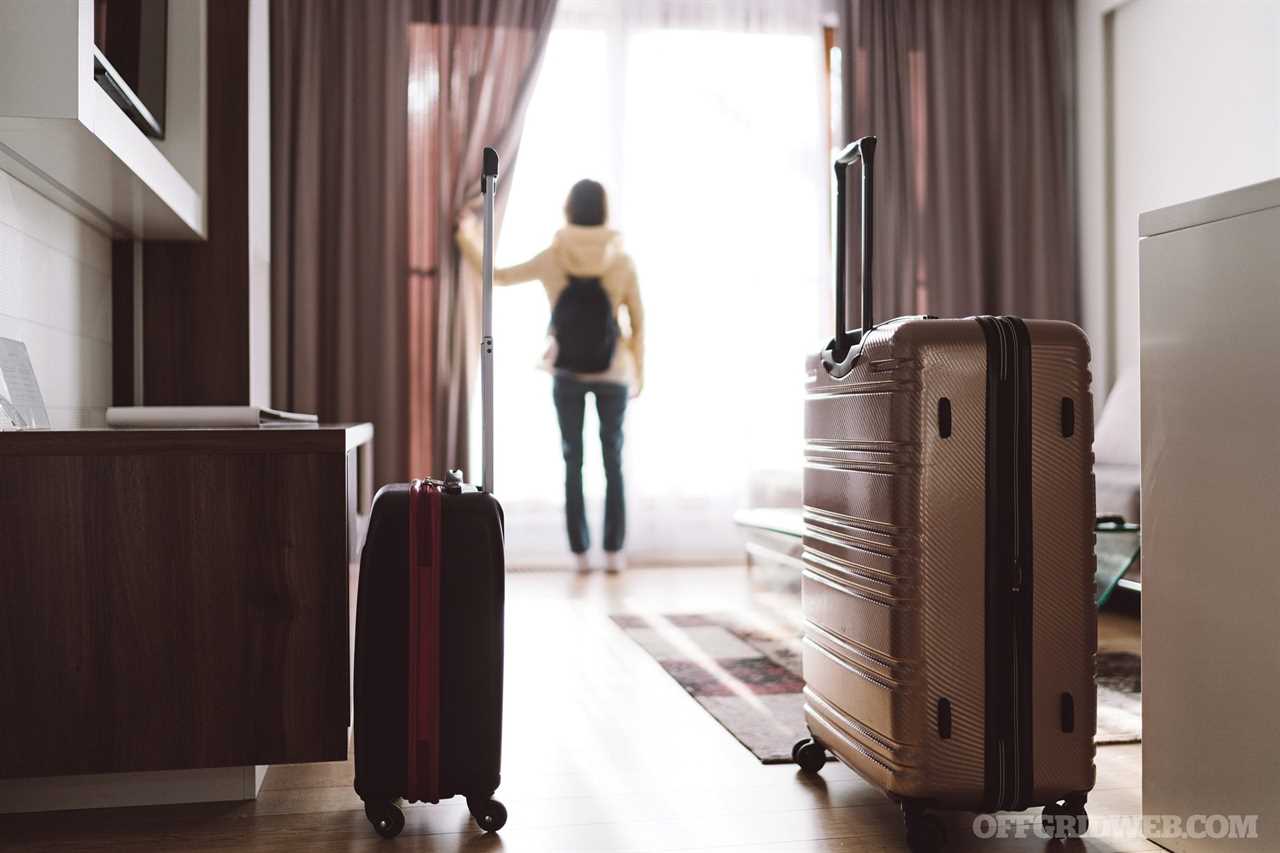
MD: This stuff is pretty well known with seasoned travelers, but I always choose rooms above the first or second floors, but beneath the sixth floor. The first two floors will have a higher percentage chance of being targeted for robberies. Anything higher than the sixth floor won’t be reached by ladders. In a worst-case scenario, floors three through five are low enough that you could potentially survive a fall if you needed to jump. Ideally, I’d also like to be close to the stairs. When I was in Spain, there was a hotel fire and I was able to quickly grab my belongings and exit while everyone else was swallowed by chaos and panic. When making your reservations, use the “special requests” section for these requirements. If you just show up and ask, the probability is a lot slimmer of getting what you want.
“The Sweep” is a prerequisite for hotel safety. It’s when you get to the hotel room and check the overall quality and security of your room. My personal sweep looks something like this … I don’t even think about it anymore.
- This is a big one, and seems laughable, but how many people really do this? With the door open, make sure there’s nobody in the room.
- Check that all appliances and lights work.
- Make sure the room quality is acceptable.
- Check that all windows and doors work.
- Make sure the locks are fully functional.
- Check the security of the room safe — is it attached? Does a master code unlock it?
- Cover the peephole.
- Use a laser detector to check for cameras. If you don’t have one, get one. However, an alternative method is dimming the lights and using a flashlight. If you shine it on a device that’s has a small pinhole camera, you can catch the reflection. [Editor’s note: Some cell phones and digital cameras can also detect infrared light sources, such as those used by CCTV systems. To test this, go to a dark place, hold down a button on a TV remote, and see if the emitter lights up on your camera’s display. If it’s a cell phone, test both front- and rear-facing lenses — newer phones often have IR-blocking filters built into at least one of these.]
After the internal sweep is done and everything checks out, I leave my room and count doors to the staircase. This is an easy but important thing I do just in case something happens and I can’t see. When I get to the exit, I follow it all the way. Better to find out now if a hotel exit is blocked or even locked. If there’s a problem, I’ll contact the hotel and have them sort it out and find an alternate exit.
Anytime I leave my room, I leave the TV or music on. I also put out the “do not disturb” sign and instruct the front desk that I don't want anyone to enter my room.
Safety should be as much of a consideration as your comfort when planning travel. These are some essential habits that will ensure that a bad situation doesn’t turn into a catastrophic event. All this safety and security can feel daunting and like an endless routine; however, so did driving a car when you first started. Now it’s an effortless habit — the same will be true of security when you travel. Once it becomes habit, you no longer have to pay it the conscious attention you once did. Always trust your intuition. If something feels off, don’t ignore it or look for a “why.” I've left hotels because something wasn’t right. I’ll gladly eat the money it costs for my peace of mind and safety.
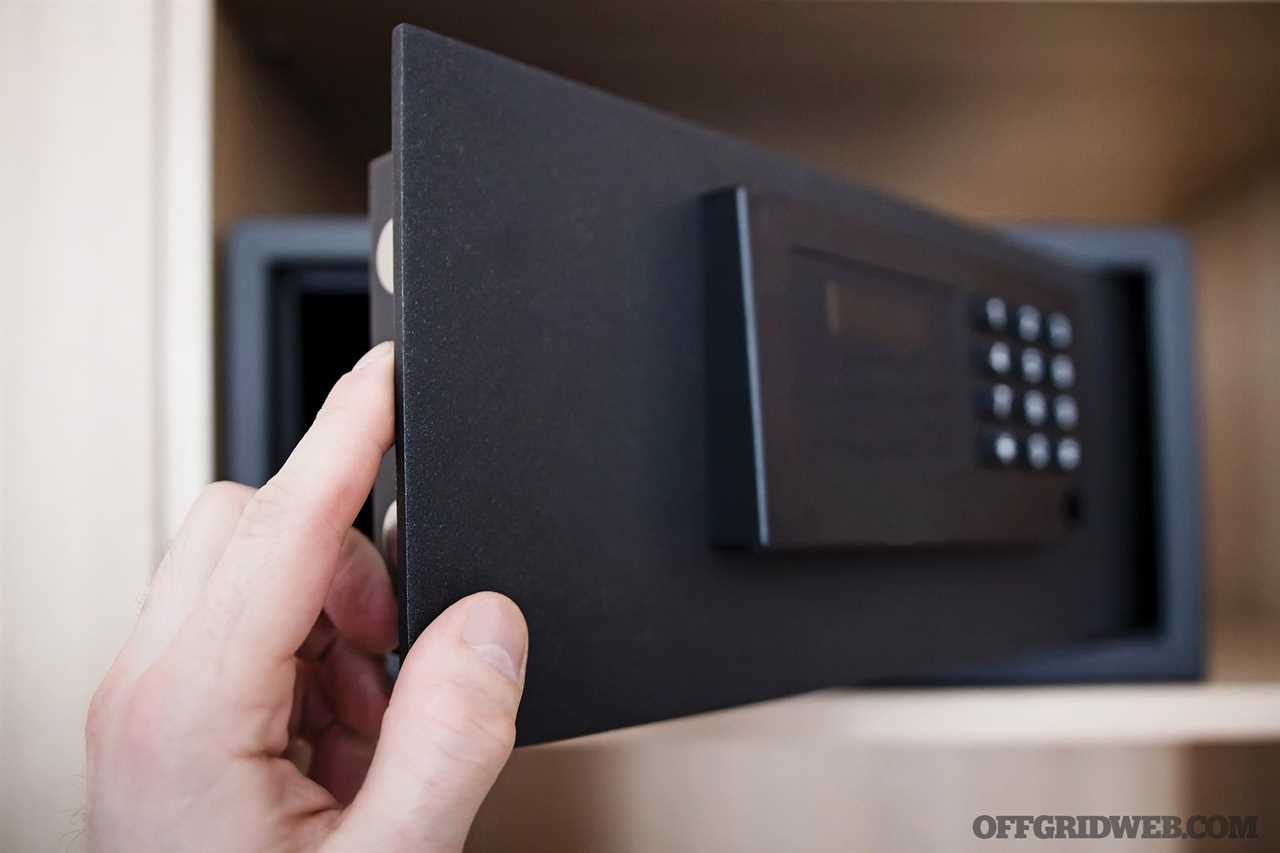
Never use a hotel safe! Exploiting hotel electronic (and analog) locks has been done for ages, and there’s really not...
Are there any steps you take before lights-out to prepare for an incident during the night?
WE: I complete most of the pre-action steps above. Make sure if you’re traveling with a weapon that it’s accessible — if you sleep on a specific side of the bed at home, make sure to replicate that while traveling. Muscle memory is key. If you wake up at home with a bump in the night and grab a pistol from the nightstand with your left hand, you’d put yourself at a disadvantage to reverse this.
Beyond that, make sure to have a flashlight next to your bed. Also prepare your communications device, like a cell phone, radio, or the room’s courtesy phone — assuming you made sure it works — and your weapon (if applicable).
Utilize either a commercial or improvised alarm option as previously mentioned. If you have a suite with a shared bathroom with two doors (one coming from the living space, the other coming from the bedroom), then the same type of alarm should be applied to the door handle of the door leading from the living space into the shared bathroom. If an adversary should make entry to your room in the middle of the night, they’re either coming through the bedroom door or through the door leading into the bathroom from the living space. If they come through the bathroom, you’re going to know. If you’re armed with a firearm (utilizing your standard safety rules, especially knowing what’s beyond your target), make sure you’re aiming below the doorknobs. Unless they’re proned out, you’re going to hit something.
Always keep a single light on that'll lightly illuminate the common area(s) of the room, even if it means turning on the bathroom light and leaving the door cracked. You’ll need something for observation and target acquisition at 0300. Make sure you know the location of your critical gear (and the doorknobs). If need be, purchase glow-in-the-dark talismans to mark your critical gear. Also, if this is a house or multistory condo, make sure to relay your plan to your guests so they know what to do when they hear something.
To summarize: alarm, illumination, weapon(s), and escape route.
MD: While it’s definitely important to do the standard door and window check, one of the most beneficial things you can do is set up your nightstand. Wherever I travel I always have the same setup next to my bed. This has come from experiencing a variety of different scenarios, from a fire in the hotel to someone trying to get into my room.
I set aside a flashlight, a blade, gloves, and a small grab bag that has my passport, money, and documents in it. I also have my backpack next to the nightstand — that way I can grab it and go if time allows. For door security, I always have a door wedge. They're incredibly strong and easily locally sourced. Also, if the door has an arm on the inside, some paracord or a strap tied around will keep it from opening.
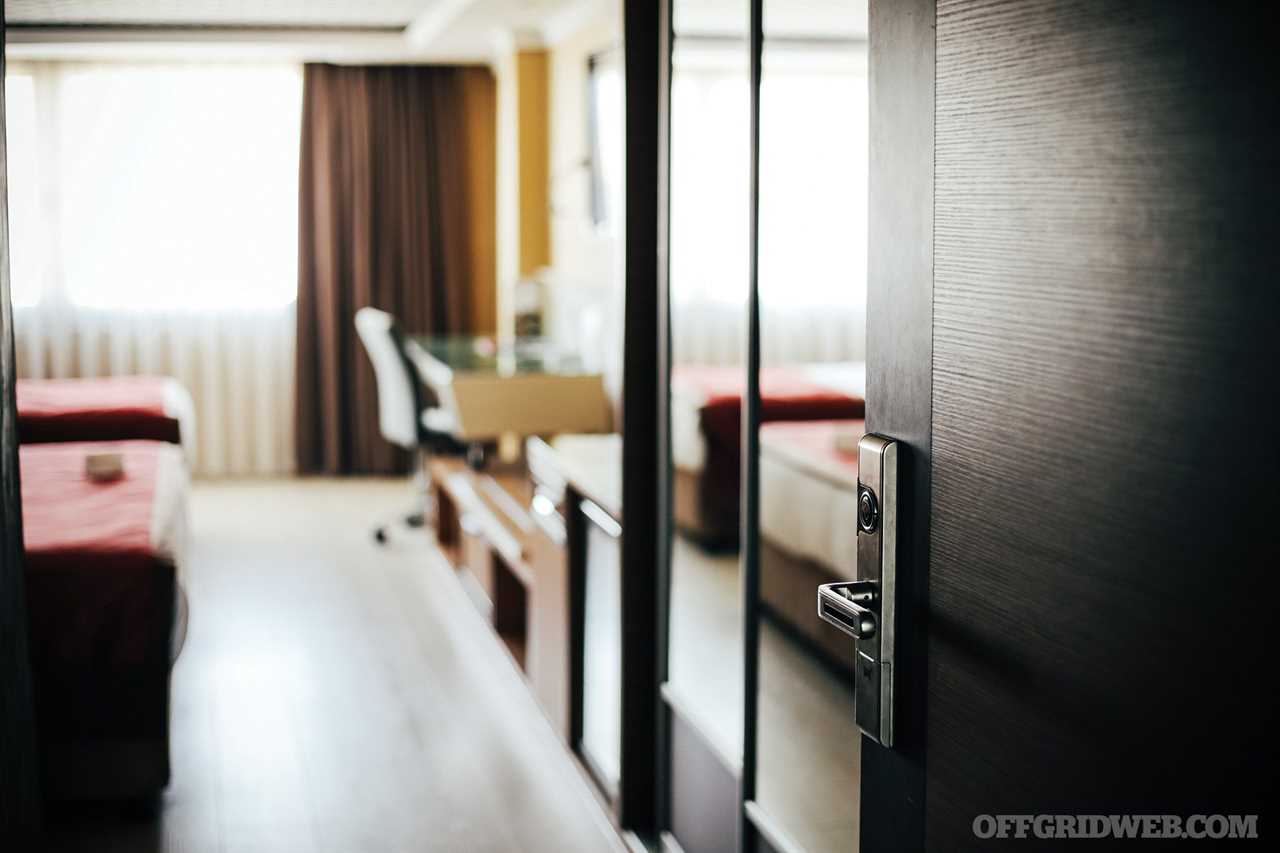
Precautions for Unwanted Guests
How would you confirm whether someone entered your room or tampered with your luggage while you're away?
WE: I described some of these options before, such as a webcam or old cellphone as a CCTV camera, the hair tripwire technique, or photographing specific item locations so you know when they’ve been moved. Also, use the towel technique so no one uses a bypass bar to enter the room. A cheapo mousetrap can work wonders in conjunction with the hair tripwire method. If someone sets off a mouse trap, then they’re going to jump and rush out. If the trap is activated and there’s no one there, you can bet someone set it off since very few would go back to reset it.
MD: There are plenty of variations to this trick, but the business card is my favorite and I use it religiously. It’s easy and low tech. Upon checking in, grab a couple business cards from the front desk. When you leave your room, wedge a folded card in the crack of the door at a specific height. Make sure to push it into the crack far enough that it cannot be easily seen if someone walks up to your door. Use something like a comb or flashlight to precisely measure the height at which you place the card. If someone enters your room, the paper will fall out. While they may notice this little trap and replace the card, it’s highly unlikely that they'll replace it at the exact height you measured. If they see this upon entering your room, it may also deter them from stealing if they think they’ve already been caught. Just make sure to measure the card height when you get back to your room before opening the door.
Another easy trick is to take a picture of your room or your luggage before you leave. When you come back, check the picture against your stuff to see if anything is clearly out of place.
Do you hide valuables, money, or other items in your room? (For example, using any place other than your luggage, cabinets/dresser, or in-room safe.)
WE: If you roll your clothes in your luggage and/or just roll your socks, this is a great place to hide valuables. Also, if you checked a bag, you should have your pocket knife and/or multitool. Hide valuables in the duct work, making sure to adjust the thermostat and listen for noticeable vibration. Once you’ve checked that, you can turn the thermostat back to normal. Also, depending on the size of your item(s), the room’s ice bucket is a good option. Put your valuables in the bottom of the bucket and place a plastic bag (usually provided) over the top of the valuables. Now, go fill the plastic bag up. If there’s a pull-out couch, turn the couch in such a way that it would be easy to notice if it was moved, and wrap up your valuables in the pullout. Also, use the plastic bag from the ice bucket to hide items in the toilet’s tank.
MD: I’ve been doing this for years whenever I frequent “seedy” places or places with little to no security. A telephone jack or cable jack box will usually be hollow behind the faceplate, which makes it perfect for an added step of security for valuables. It’s not foolproof and you can’t fit much in there, but it'll definitely hold a few key valuables that you don’t want to live without.
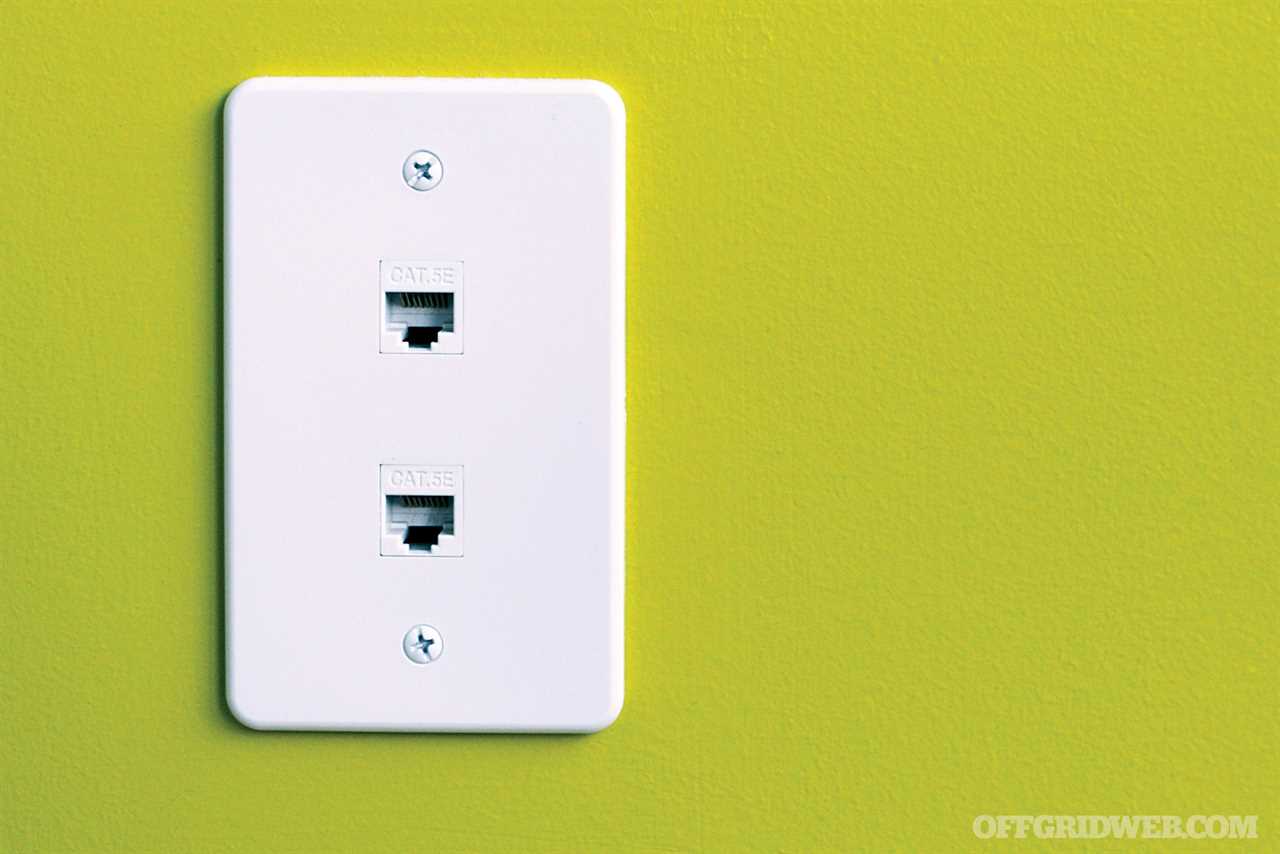
Web Exclusive: More Hotel Travel Security Security Q&A
Our travel security discussion with these experts went on to cover several other topics, including the AirBnB alternative, keeping your vehicle safe in a parking lot, detecting hidden cameras, and maintaining communication security. We couldn’t fit these questions in print, but they’re available now at OFFGRIDweb.com/preparation/hotel-security.
About the Authors
William Echo (a pseudonym) has 14 years of combined experience in IT security, law enforcement, close protection, and corporate security operations. He has served various roles, ranging from training officer, EMT, communications chief, red team leader, infrastructure protection, anti-money laundering investigations, and intelligence gathering. With both parents in the IT industry and an aptitude for technology, that’s the direction he headed. After college, a family friend who was former law enforcement introduced him to a volunteer program that the local police department had available. Not long afterward, he ditched IT and used his police department contacts to land a job doing security work for a large financial firm, including performing infrastructure and facility protection during the aftermath of Hurricane Katrina. After spending a few years in law enforcement, he returned to corporate security/protection and has been there ever since.
Micah Dalton is a global adventurer, photographer, and travel writer. Told at a very young age by his grandmother that he had “gypsy blood,” he hasn’t stayed in one spot since. A bona fide travel addict, his adventures have taken him to over 35 countries and all seven continents. He’s studied Buddhism in Thailand, knife fighting with a South African master, motorbiked the jungles of Vietnam, and hitchhiked all across America. After over a decade of dangerous adventure travel and specialized training with Ed Calderon and other high-level instructors, Micah has now distilled his experiences into a series of travel and safety compositions for major publications. Join the adventure on Instagram at @classic_mcqueen.
The post The “Baits” Hotel: Travel Security Advice from Experts appeared first on RECOIL OFFGRID.
By: Patrick McCarthy
Title: The “Baits” Hotel: Travel Security Advice from Experts
Sourced From: www.offgridweb.com/preparation/the-baits-hotel-travel-security-advice-from-experts/
Published Date: Wed, 06 Nov 2024 06:01:57 +0000
------------------------
 What is BushcraftSurvival SkillsToolsVideosBushcraft CampsBushcraft KitsBushcraft ProjectsPrivacy PolicyTerms And Conditions
What is BushcraftSurvival SkillsToolsVideosBushcraft CampsBushcraft KitsBushcraft ProjectsPrivacy PolicyTerms And Conditions
